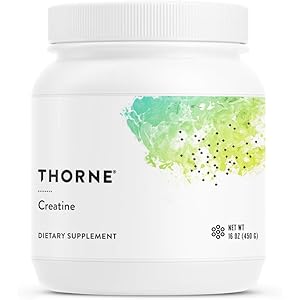RYZE SUPERFOODS Mushroom Coffee USDA Organic with 6 Adaptogenic Mushrooms and MCT Oil, USA Grown Instant Coffee for Better Energy, Focus, Digestion, Immunity with Lions Mane & Turkey Tail, 30 servings
$44.99 (as of October 27, 2025 06:27 GMT +00:00 - More infoProduct prices and availability are accurate as of the date/time indicated and are subject to change. Any price and availability information displayed on [relevant Amazon Site(s), as applicable] at the time of purchase will apply to the purchase of this product.)What Are Macronutrients?
Macronutrients are the nutrients that provide the energy necessary for our bodies to function. They are essential for growth, metabolism, and other bodily functions. The three primary macronutrients are carbohydrates, proteins, and fats. Each of these macronutrients plays a unique role in maintaining health and supporting various physiological processes. Understanding what macronutrients are is crucial for anyone looking to optimize their diet and overall well-being.
Carbohydrates: The Body’s Primary Energy Source
Carbohydrates are often referred to as the body’s main source of energy. They are broken down into glucose, which is used by our cells for fuel. Carbohydrates can be classified into simple and complex forms. Simple carbohydrates, found in foods like sugar and fruit, provide quick energy, while complex carbohydrates, found in whole grains and legumes, offer sustained energy release. Including a balanced amount of carbohydrates in your diet is essential for maintaining energy levels and supporting physical activity.
Proteins: The Building Blocks of Life
Proteins are vital for the growth and repair of tissues in the body. They are made up of amino acids, which are the building blocks that support muscle development, immune function, and hormone production. There are 20 different amino acids, nine of which are essential and must be obtained through diet. High-quality protein sources include meat, fish, dairy, legumes, and nuts. Understanding the importance of protein can help individuals make informed dietary choices to support their health and fitness goals.
Fats: Essential for Hormonal Balance and Energy
Fats are often misunderstood, yet they play a crucial role in our overall health. They are necessary for the absorption of fat-soluble vitamins (A, D, E, and K) and are vital for maintaining healthy cell membranes. Fats can be categorized into saturated, unsaturated, and trans fats. Unsaturated fats, found in foods like avocados and olive oil, are considered heart-healthy, while trans fats should be limited due to their association with increased health risks. Including healthy fats in moderation can enhance your diet and support various bodily functions.
What Are Micronutrients?
Micronutrients, unlike macronutrients, are required in smaller amounts but are equally important for our health. They include vitamins and minerals that play critical roles in various bodily functions, such as immune support, bone health, and energy production. Micronutrients are essential for preventing deficiencies and maintaining overall well-being. A well-balanced diet rich in fruits, vegetables, whole grains, and lean proteins can help ensure adequate micronutrient intake.
The Role of Vitamins in Our Diet
Vitamins are organic compounds that are crucial for numerous biochemical processes in the body. They can be classified into water-soluble vitamins, such as vitamin C and the B vitamins, and fat-soluble vitamins, including vitamins A, D, E, and K. Each vitamin has specific functions, such as supporting the immune system, promoting healthy skin, and aiding in energy metabolism. A diverse diet that includes a variety of foods can help individuals meet their vitamin needs and support optimal health.
The Importance of Minerals
Minerals are inorganic substances that are essential for various bodily functions, including bone health, fluid balance, and muscle contraction. Key minerals include calcium, potassium, iron, and magnesium. Each mineral plays a unique role in maintaining health, and deficiencies can lead to serious health issues. Consuming a balanced diet that includes a variety of foods, such as dairy products, leafy greens, nuts, and seeds, can help ensure adequate mineral intake.
Balancing Macronutrients and Micronutrients
Achieving a balance between macronutrients and micronutrients is essential for optimal health. While macronutrients provide the energy needed for daily activities, micronutrients support various physiological functions that keep the body running smoothly. A well-rounded diet that includes a variety of foods from all food groups can help individuals meet their macronutrient and micronutrient needs. This balance is crucial for maintaining energy levels, supporting immune function, and promoting overall well-being.
How to Optimize Your Diet for Macronutrients and Micronutrients
To optimize your diet for both macronutrients and micronutrients, focus on whole, minimally processed foods. Incorporate a variety of fruits, vegetables, whole grains, lean proteins, and healthy fats into your meals. Meal planning and preparation can help ensure that you are meeting your nutritional needs. Additionally, consider consulting with a registered dietitian or nutritionist to create a personalized nutrition plan that aligns with your health goals and lifestyle.


